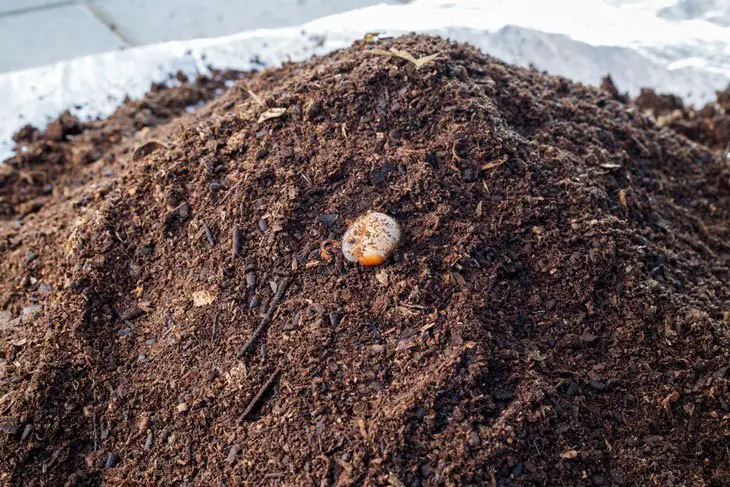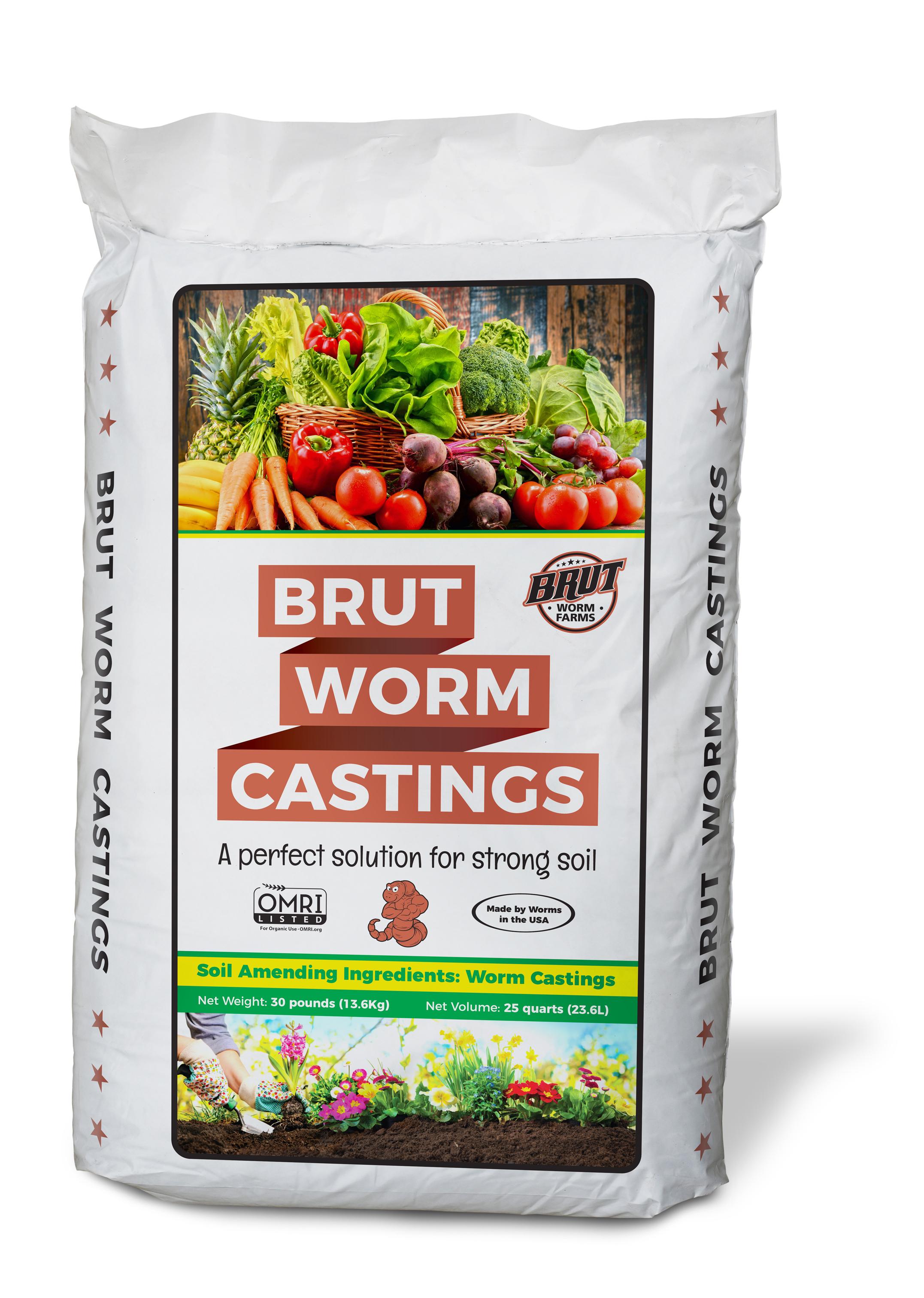


Gardeners should replenish microbe populations and soil nutrients by adding 2” of our compost to raised beds and containers in the fall and the spring. Our gardeners nurture the microbes in the soil using the “no till, no dig, no pull rule,” keeping the soil covered and spraying with “fish emulsion” every week. Our worm castings have been tested by geneticists taking a “census in the soil.” The worm castings are superior to traditional organic fertilizers in many ways – including “humic acid” content. The manure is vastly transformed after passing through the worms digestive tract. The worms eat nutrients and microbes in the animal manure over several months. This saves you time, worry and money fertilizing during the growing season. The nutrients and beneficial microbes are available to the plant roots whenever they need them all season long. The concentration of microflora is exponentially greater in our manure-based worm castings than in our microbe-rich compost that also contain manure. The microbes feed nutrients and other important chemicals to the plants in a form the plants can absorb easily.

The latest soil science says that soil microbes feed the plant roots far better than organic fertilizers that most gardeners buy in little bags at the garden center. Plant with a mixture of half and half compost and worm castings. Use more worm castings and compost in each seedling hole and seed planting area if your beds are filled with conventional soil. Use our high quality organic worm castings along with our microbe-rich compost to plant your seeds and seedlings. Worms fed composted manure for several months produce the top quality worm castings. Worm castings vary in potency depending on the type of organic matter that the worms eat. Worm castings are better than organic fertilizer! Learn more about the critical role worm castings play in our innovative growing method in the 4 blog posts below. Our castings contain huge populations of beneficial bacteria and fungi, which improves soil structure and promotes plant health. Lower quality worm castings are produced when the worms eat plant waste, food scraps and other biodegradable waste.

Our high quality worm castings are produced when red wiggler worms consume composted manure over several months. Both our compost and worm castings add an ultra-rich source of active microbes and fungi. We use worm castings when planting seeds and seedlings. Instead of conventional soil we fill our raised beds and containers with 100% microbe-rich compost. The worm castings are an excellent soil amendment rich in nutrients, including nitrogen, phosphorus, and potassium, which are essential for plant growth. Microbe-rich worm castings are a primary part of our innovative growing method and take the place of traditional organic commercial fertilizers.


 0 kommentar(er)
0 kommentar(er)
